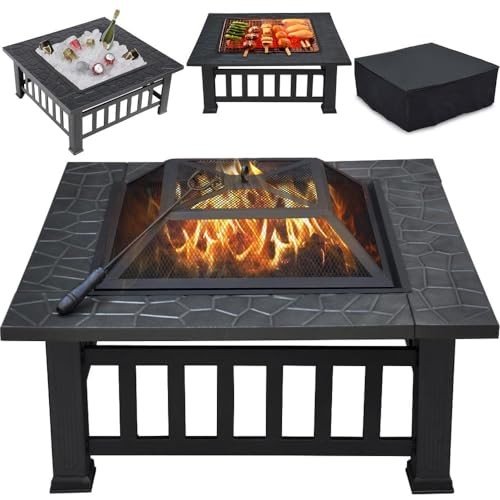There's A Reason Why The Most Common Buy Fireplace Debate Isn't As Black Or White As You May Think
A Comprehensive Guide to Buying a Fireplace: Choosing the Right Fit for Your Home
Fireplaces have long been a main function in homes, providing heat, atmosphere, and a meeting place for friends and families. Whether you're constructing a brand-new home, refurbishing an existing space, or merely wanting to update your existing setup, buying the best fireplace can make all the distinction. investigate this site intends to offer a detailed introduction of various fireplace choices, considerations for installation, and pointers for upkeep.
Kinds of Fireplaces
When considering a brand-new fireplace, homebuyers will discover several types to pick from. Each type includes its own special functions, advantages, and downsides. Below is a breakdown of typical fireplace types:
Fireplace Type
Description
Pros
Cons
Wood-Burning
Traditional option utilizing logs for fuel.
Genuine experience, strong heat source.
Needs routine upkeep, fuel storage, and ventilation.
Gas
Uses natural gas or gas, normally with a vented or ventless alternative.
Easy to use, less maintenance than wood.
Requires a gas line, might lose some ambiance.
Electric
Plug-and-play options with no need for venting, providing simulated flames.
No installation essential, safe for houses.
Lacks the authenticity of genuine flames.
Ethanol
Utilizes bio-ethanol fuel in a portable or set system.
Clean burning, no venting required.
More pricey fuel costs, restricted heat output.
Pellet
Burns compressed wood pellets for fuel, comparable to wood-burning.
Environmentally friendly, low emissions.
Needs electricity for operation, specific fuel needed.
Secret Considerations When Buying a Fireplace
1. Space Size and Layout
The fireplace ought to be ideal for the size and design of the room. A fireplace that is too large may overwhelm the space, while one that is too small might not effectively heat the area.
2. Heating Needs
Think about how much heat you require for the space. An electric fireplace may be sufficient for a smaller space, while a wood-burning or gas fireplace is ideal for larger areas needing considerable heat.
3. Visual and Style
Fireplaces are available in a variety of styles, from contemporary to rustic. It's important to pick one that matches the overall design of your home.
Popular Fireplace Styles:
- Modern streamlined designs
- Traditional elaborate finishes
- Rustic stone or brick
- Minimalist electric models
4. Fuel Source
Choosing a fuel source is vital for function as well as choice. Property owners must consider the schedule, cost, and convenience of the fuel they wish to use.
5. Installation Requirements
Comprehend the setup requirements, as some fireplaces, specifically wood-burning units, require a chimney, while others may be more straightforward to install. House owners may require to seek advice from with experts to make sure proper installation and compliance with local codes.
6. Spending plan
Fireplaces can range considerably in price from budget-friendly electric designs to high-end gas and wood-burning systems. Aside from the initial purchase cost, think about installation expenses and ongoing fuel costs.
Setup Process
Setting up a fireplace is a substantial project that might need expert assistance. Here is an overview of the basic actions included:
Planning and Design
- Assess places and designs based on style and heating requirements.
Obtain Necessary Permits
- Examine local structure guidelines and obtain any essential authorizations for installation.
Pick a Professional Installer
- Consider hiring a certified professional for security and compliance with codes.
Prepare the Installation Site
- Clear the area and established any required materials or support structures.
Follow Manufacturer Instructions
- Abide by specific guidelines supplied by the fireplace manufacturer during setup.
Last Inspection
- After installation, guarantee a last examination is conducted to confirm the system's security and functionality.
Upkeep Tips for Your Fireplace
To guarantee longevity and ideal efficiency of your fireplace, routine upkeep is vital. Here are some pointers to keep your fireplace in great shape:
Wood-Burning Fireplaces
- Tidy the chimney at least as soon as a year to prevent creosote accumulation.
- Usage seasoned wood for less smoke and much better performance.
- Examine the fireplace structure for fractures or wear and tear.
Gas Fireplaces
- Inspect gas connections for leakages periodically.
- Tidy the glass and the burner for optimal efficiency.
- Arrange annual maintenance with a certified professional.
Electric Fireplaces
- Dust and clean the system routinely.
- Inspect connections and change any malfunctioning parts if needed.
- Make sure the system is sparkling clean before use each season.
Ethanol and Pellet Fireplaces
- Keep fuel sources stored securely and away from heat.
- Clean the burner and guarantee no clogs occur.
Frequently asked questions
Q: What kind of fireplace is most effective for heating?A: Gas fireplaces and
pellet stoves tend to have greater performances, transforming more energy to heat compared to wood-burning options.
Q: Can I install a fireplace in any room?A: While lots of spaces can accommodate a fireplace, ventilation, offered area, and local policies might impact feasibility.
Q: Are electric fireplaces safe?A: Yes,
electric fireplaces are usually really safe, include no real flames, and typically include features that prevent getting too hot.
**Q: How do I choose the best size fireplace?A: Consider the square footage of the room and talk to suppliers about recommended BTU ratings for heating efficiency. Purchasing a fireplace is a significant
choice that can greatly enhance your living space. By thinking about the type of fireplace, your heating requires, installation requirements, and ongoing upkeep, house owners can pick the ideal system to satisfy their choices and boost their home for several years to come. Whether you lean towards a traditional wood-burning fireplace or a modern electric option, the best fireplace will offer warmth, convenience, and style that can be treasured for generations.  **
**